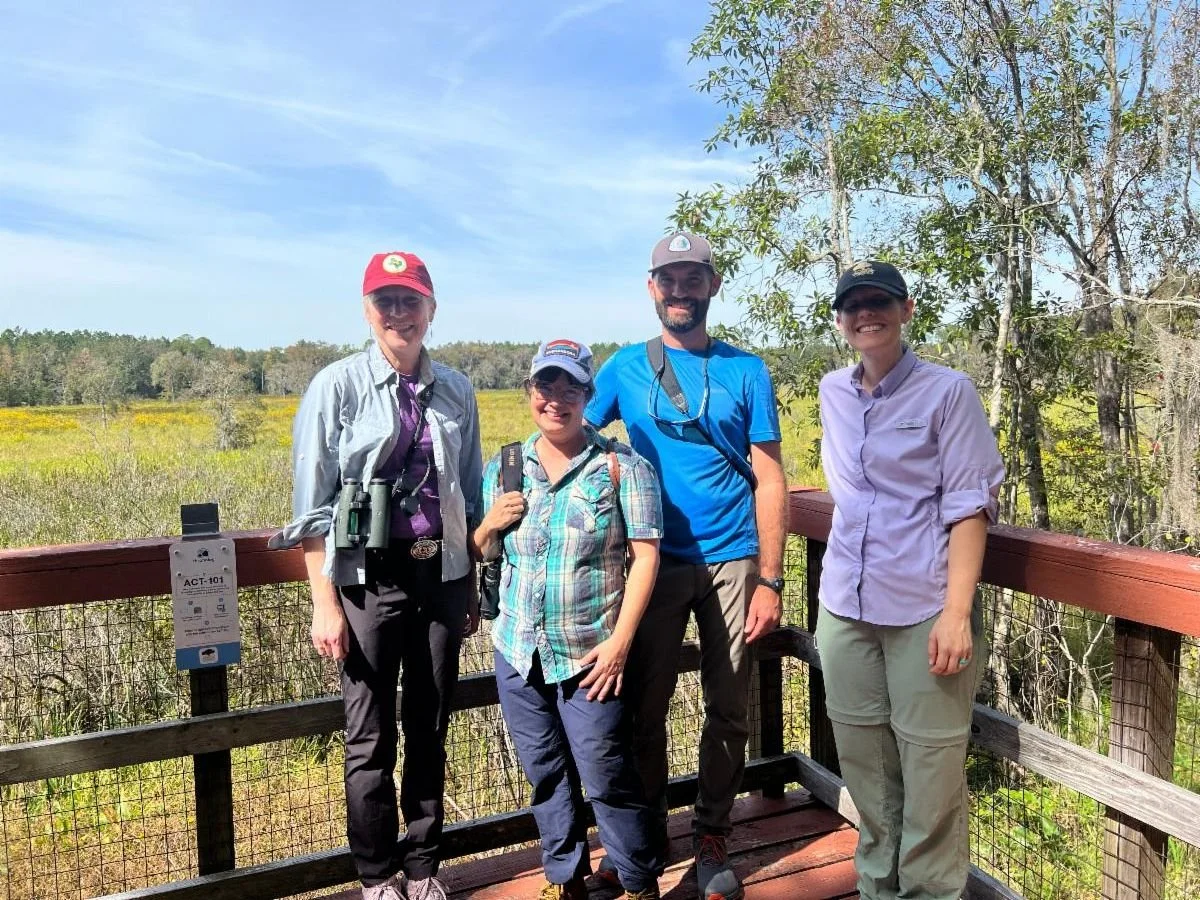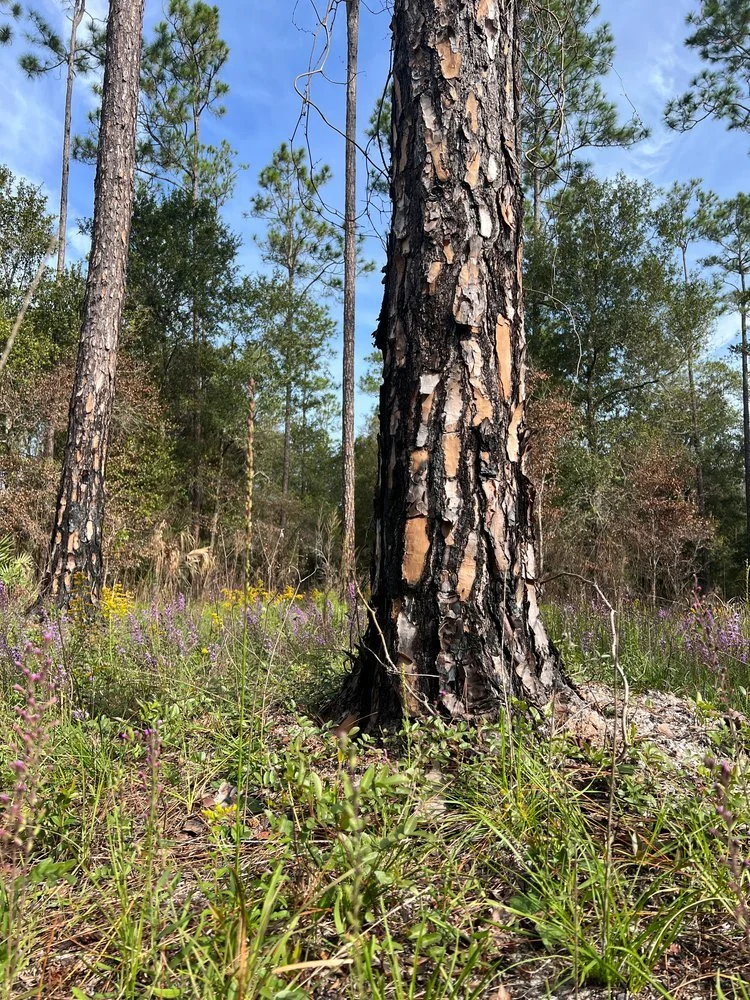Cornell Lab of Ornithology Visits North Central Florida
From left to right, Cornell Project Leader Sara Barker along with ACT staffers Erica Hernandez, Danny Rohan, and Heather Obara
The work that land trusts accomplish every day through fee acquisition, conservation easements, and land management has become a powerful tool for conserving wildlife habitat across the world. Not only can connecting and restoring land benefit native species of birds, but birds can also benefit land trusts. That simple premise is why the Cornell Lab of Ornithology launched its Land Trust Bird Conservation Initiative in 2013 in partnership with the Land Trust Alliance. Cornell's Small Grants Program provides funding to land trusts to increase the pace of land conservation with the goal of providing quality habitat for birds.
In October, Sara Barker, who serves as the Project Leader for the Land Trust Bird Conservation Initiative visited ACT in North Central Florida for a tour of several properties where grant projects funded by the initiative are underway.
Our first stop was at Crones' Cradle Conserve, which is a participant site for the Burning for Birds Conservation Collaborative. The collaborative is a partnership between ACT, Tall Timbers Research Station and Land Conservancy, Prescribed Burn Associations and local Audubon chapters to engage with landowners to conduct land restoration activities, such as prescribed fire, on their properties for the benefit of birds.
Fall wildflowers in bloom in the recently burned unit at Crones' Cradle Conserve.
The fall wildflowers were in full bloom at Crones' Cradle following a growing season prescribed burn on the property in August. The goal of the burn was to restore habitat for bird species such as bobwhite quail, Bachman's sparrow, and eastern meadowlark. ACT Natural Resource Interns and Alachua Audubon Society volunteers conducted photo and bird surveys before and after the burn to document change in the habitat over time. Keep an eye out for an online StoryMap about this project soon!
Sara and ACT staff also visited Fox Pen Preserve, located in far eastern Alachua County, where Cornell grant funds have been utilized to plant native grasses and restore sandhill habitat that will benefit birds and other wildlife, such as gopher tortoise. This area of the preserve is open to the public to explore along hiking trails and features interpretive signs about birds, native habitat, and land restoration.
A big thanks to Cornell Lab of Ornithology for its support for these two important habitat conservation projects!


